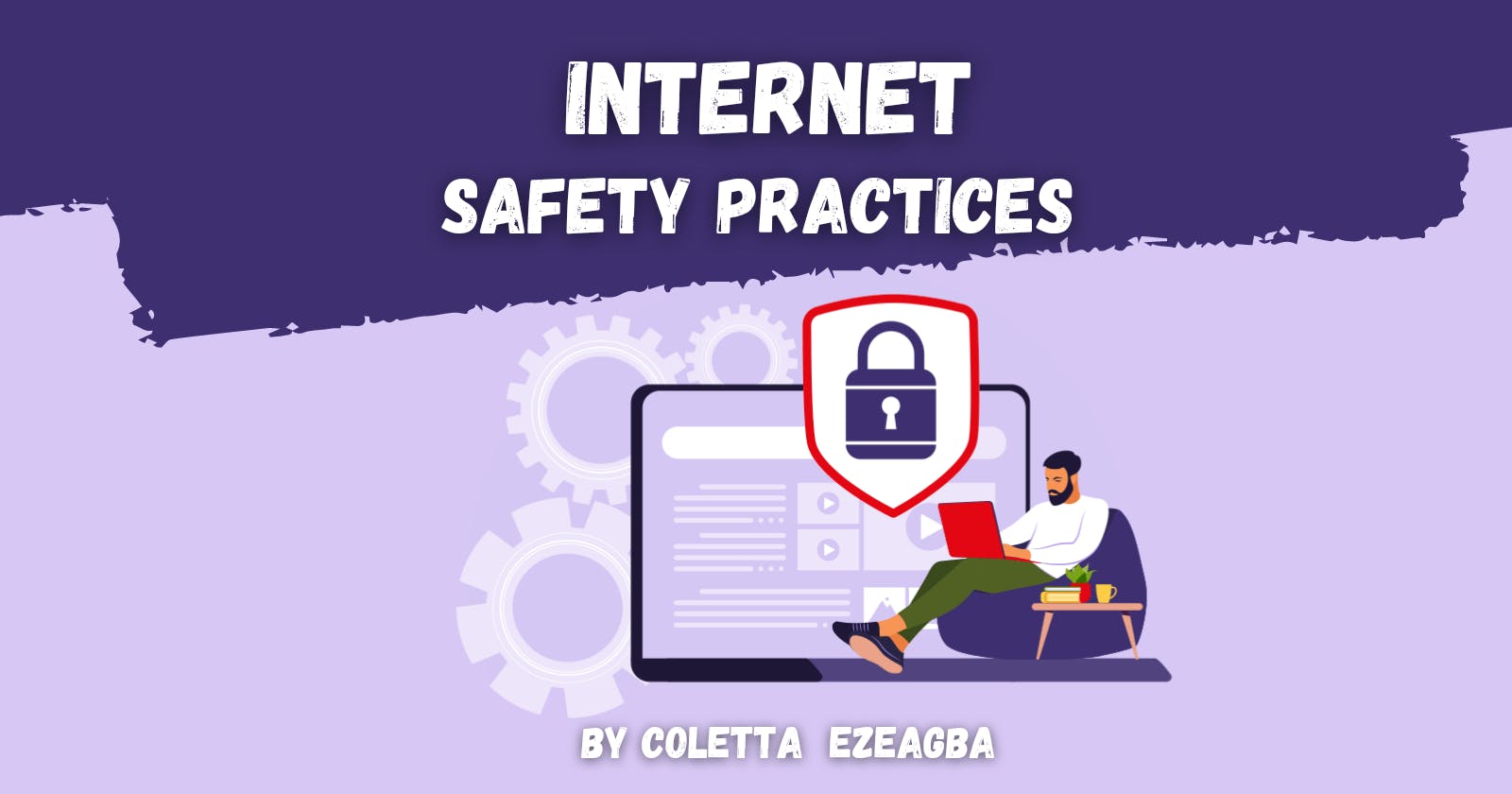The internet has transformed the way we use things and live our lives, enabling us to enjoy entertainment, carry out better research, book tours, buy and sell, network, learning, banking and carrying out many other everyday tasks. Moreover, there are a number of risks associated with going online. These result from either visiting malicious websites or in advertent disclosure of personal information.
DEFINITION OF INTERNET SAFETY
Internet safety is the act of staying safe online. It is popularly known as E-Safety and Cyber Safety. It consists of all technological devices which have access to the internet from PCs and Laptops to the Smartphones and Tablets. Being safe online simply means you're protecting yourself and others from online harms and risks which may jeopardize their personal information, lead to unsafe communications or even affect their mental health or well being.
10 WAYS OF IMPROVING INTERNET SAFETY PRACTICES
1) Using Virtual Personal Networks (VPN)
A VPN makes your internet connection private by changing your IP address, which is your location. It also hides the sensitive data you send over, including bank details when you're shopping online and other private information that can be compromised. The VPN keeps you safe and keeps your identity hidden.
2) Using The Most Up-To-Date Version Of Your Operating System
Your operating system is the main piece of software controlling your computer. Which includes; Microsoft Windows, Macintosh OS and Linux. All new computers have their software installed. The most recent version of the software is usually the most secure.
3) Enable Multi-Factor Authentication
This is an authentication method that asks users to provide two or more verification method to access an online account.
4) Use a good antivirus and keep it up-to-date
5) Avoid Suspicious Online Sites
Ensure you only log into sites that starts with https://. If you are about to log into any sites, ensure the address at the top of your web browser starts with https:// and not http://. The "S" stands for "Secure" and it means the site is encrypting your data and the site is safe and secured.
6) Be Careful Of What You Download
One of the major goals of cybercriminals is to trick you into downloading malware. Malware might be disguised as an app or it could be hidden on a malicious websites that attempts to install malware on your device. Malware caused damages such as; disrupting how your device operates, Stealing your personal data or enabling unauthorized access to your machine. Think carefully before downloading anything onto your device and only download content from trusted or official sources.
7) Be Careful About WIFI
Try to avoid connecting to unsecured public WIFI networks by all means. And also ensure your own WIFI networks are protected with strong passwords.
8) Avoid Suspicious Online Links
Avoid suspicious links from untrusted sources, and spam emails which includes; Click bait, Online quizzes, Tabloid headers, Free offers or unsolicited ads.
9) Use Strong Passwords
A lot of websites use passwords to protect your identity. If your passwords are easy to memorize, Someone can hack an account. Using strong passwords is crucial especially when spending money online. And passwords should not be the same on all the websites you use.
10) Review your privacy settings and understand privacy policies
Ensure you avoid suspicious links from untrusted sources, and spam emails which includes; Click bait, Online quizzes, Tabloid headers, Free offers or unsolicited ads.
CONCLUSION
Please endeavor to keep I hope these Internet safety practices handy so you don't fall of a victim for online fraudsters or hackers. The internet safety requires you to have a firm comprehension of the internet, What's on it, How it's used, and How it works.
REFERENCE: Ada Project Office Hour: youtu.be/MVQhdi_C4cc
